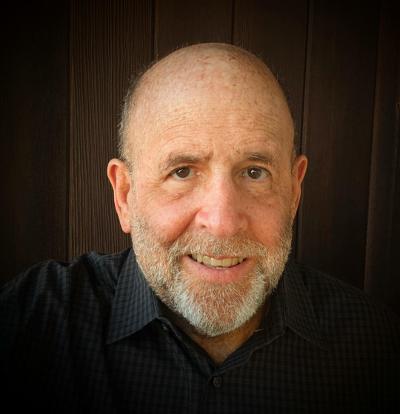Andrew Malekoff
What makes people susceptible to accepting covid vaccine conspiracy theories?
Although there is a degree of covid vaccine hesitancy grounded in some individuals’ justifiable distrust of government, this differs from hesitancy tied to outlandishly false claims like microchips were put in COVID-19 vaccines to track you or vaccines turn people into magnets due to 5G telecommunication towers.
Complicating matters is that there often seems to be someone with legitimate credentials pushing these conspiracy theories.
Cleveland-based Dr. Sherri Tenpenny, an osteopathic medical doctor, told Ohio lawmakers: “I’m sure you’ve seen the pictures all over the Internet of people who have had these shots and now they’re magnetized. They can put a [steel] key on their forehead. It sticks.”
Just when you think you’ve heard it all someone like Rick Wiles comes along. Wiles is a far-right American conspiracy theorist and pastor at the Flowing Streams Church in Vero Beach, Fla.
Pastor Rick declared that COVID-19 vaccines contain an egg that hatches into a synthetic parasite and grows inside your body.
My curiosity about what sucks people into conspiracy theories led me to Karen Douglas, Ph.D., a professor of social psychology at the University of Kent in the UK. Her research focuses on beliefs in conspiracy theories and their consequences.
Dr. Douglas advises that conspiracy theories flourish best during times of crisis and social upheaval. She stated that they can “be defined as a proposed plot carried out in secret, usually by a powerful group of people who have some kind of sinister goal.”
The spreaders of conspiracy theories may use certain rhetorical methods to take people in, such as “everybody else are sheep and only we know the truth.” Thus, adhering to a certain conspiracy theory can leave you feeling that you are unique, that you have special information that others don’t have, which can infuse you with a sense of superiority.
I am reminded that when children transition to adolescence a sense of personal uniqueness develops that can become a conviction that belies reality and invites risk. Renowned developmental psychologist David Elkind referred to this as a “personal fable,” a story that one tells oneself that is not true and leads to risk-taking behavior and a feeling of indestructibility.
Once a conspiracy theory sticks, the wake-up call often comes too late. Consider, for example, those people who refused vaccines, were infected and became critically ill. It was only then that they pleaded, “Is it too late for me to take the vaccine?”
The “stickiness” of conspiracy theories can be tied to one’s group affiliation. Those who have an overinflated sense of the importance of the groups that they belong to also feel that those groups are underappreciated.
This can further draw people towards conspiracy theories and leave members of those groups with the idea that my “group is good and moral and upstanding, whereas others are the evil-doers out there who are trying to ruin it for everybody else,” according to Douglas.
What seems to work best against conspiracy theories is to provide people with facts up front, before a one gains traction.
However, once someone has been exposed to a conspiracy theory, giving them accurate information after the fact doesn’t really work, which is a real concern considering the number of people who still refuse vaccines. This, of course, is exacerbated by social media’s failure to carefully monitor misinformation about vaccines.
The Associated Press reported that “Facebook employees acknowledged they had “no idea” just how bad anti-vaccine sentiment was in the comments sections on Facebook posts. But company research in February found that as much as 60% of the comments on vaccine posts were anti-vaccine or vaccine reluctant.
Even worse, company employees admitted they didn’t have a handle on catching those comments, or a policy in place to take them down.”
Imran Ahmed, the CEO of the Center for Countering Digital Hate, an internet watchdog group, asked rhetorically, “Why would you not remove comments?”
He responded to his own question, “Because engagement is the only thing that matters. It drives attention and attention equal eyeballs and eyeballs equal ad revenue.”
When advancing truth becomes a financial disincentive for corporate masters, conspiracy theories are given the air they need to thrive; while, at the same time, many of the victims of cyber-mayhem must rely on respirators to survive.



